One day after the city announced an e-scooter business has been given a permit to operate in Edmonton, people on Bird e-scooters could be seen zipping around city streets and rival company Lime says it will be quick to follow.

Conrade Rivalland, who is from Australia and in Edmonton to perform at the Fringe Festival, was quick to use one of the Bird scooters left on Whyte Avenue near 106 Street.
“I’m lazy and don’t want to carry my water!” he joked.
LISTEN BELOW: Bird Canada CEO Stewart Lyons joins the Ryan Jespersen Show
Rivalland is no stranger to the mode of transportation: he’s ridden e-scooters from Lime at the Adelaide Fringe in Australia. He has also seen the scooters in New Zealand.
“They were really good in festival environments because they’re restricted just to certain areas,” he said. “A lot of people use them. There was a little bit of a problem in New Zealand with the speed, but they slowed that down in Adelaide and very convenient.”
What does it cost?
The Bird scooters cost $1.15 to start and 35 cents a minute after that — a rate the company said earlier this year would make the service competitive with public transit. People pay using an app.
On Friday, Lime confirmed it is also rolling out their e-scooters in Edmonton this weekend. The company said it will start with 200 scooters beginning Saturday, and aims to eventually have a fleet of more than a 1000.
Lime scooters will cost $1 to start and 30 cents a minute after that. The company said while Lime scooters will be available throughout Edmonton, they will be concentrated in the downtown urban core.
Watch below: Edmonton is now officially an e-scooter city. Vinesh Pratap takes a look at what that means for transportation in Alberta’s capital.

Rivalland said the cost to use the scooters can add up if you’re using them constantly, but “generally for a quick, short ride they’re really good.”
“It’s electric so it’s a smaller imprint on the environment. And anything that gets people doing this rather than jumping in a car is good,” said Rivalland before zipping off down 82 Avenue, with his case of water at his feet.

Get weekly health news
The Bird scooters seen being used Friday are part of a test ahead of the company’s official launch, according to Christy Laverty with Boulevard PR, which was speaking on behalf of the electric scooter company.
Where can you ride?
As of Friday, the boundaries for the Bird scooters were: north-south from 74 Avenue to near 111 Avenue, and the Mill Creek Ravine and the east end of downtown to Hawrelak Park and 125 Street in the west.
As of Friday, it appeared the scooters also could not cross any of the bridges between downtown and Old Strathcona, with the exception of Groat Road. They also could not enter Victoria Park.
The restricted areas, sometimes called “no-ride zones,” are shown in the Bird app’s interactive map as translucent red shapes that trace city boundaries and property lines, according to the Los Angeles Times. In Edmonton, the University of Alberta campus was marked as a “no-ride zone.”
The boundaries for Lime are smaller: Old Strathcona south of the river and downtown and Oliver north of the river. The Lime app shows the University of Alberta campus and Legislature grounds as unserviced areas.
A spokesperson said that means users can go through the area and stop briefly, but if they end their ride and leave the scooter there, their account risks being suspended.
READ MORE: ‘Hop on just for fun’: Lime electric scooters launched in Calgary
In Edmonton, the shared scooters are not allowed on sidewalks, only on shared-use paths the city maintains, bike lanes and on roads where the posted speed limit is 50 km/h or less. The scooters will be able to travel up to 20 km/h.
The scooters will not have docking stations to return to and instead can be parked on sidewalks, parking lanes, at transit centres, rec centres and on parkland. The scooters cannot block doors or travel for people walking, biking or driving.
Earlier this year, newly-founded Bird Canada said Alberta would be the launching point for its line of dockless electric-powered scooters.
The scooters are brand new to Edmonton, however, they have been in Calgary since July.
Scooter injuries
Electric scooters very quickly became a popular mode of transportation for Calgarians since their introduction, but with the new trend comes a slew of scooter-related injuries.
There have been 200 emergency department visits related to scooters in Calgary between July 10 and Friday, Alberta Health Services said.
WATCH: Newly founded Bird Canada says as many as 1,000 e-scooters were expected to arrive in Calgary in time for the Stampede.

Dr. Louis Francescutti with the University of Alberta School of Public Health said if the scooters have presented issues in Calgary, they will in Edmonton as well.
He noted the metered or timed system of payment will encourage people to drive faster.
“If you can save $2 by getting there three minutes earlier, what you’re going to find is that people are going to be not on their best behaviour.”
Another concern? No policing on who uses the scooters or what state they are in.
“There’s going to be cannabis use. There’s going to be alcohol. There’s going to be prescription medication. There’s going to be races,” Francescutti said.
“You can rest assured young males are going to get a whole bunch of these and have little scooter drag races to see who can go the fastest, and I’m sure the first couple of weeks are going to be quite busy.”
In Calgary earlier this month, emergency room physician Dr. Eddy Lang described some of the scooter-related injuries they’ve seen there.
“Given that you’re in that somewhat precarious vertical position, people are falling off of these and as a result, we’re seeing mostly upper extremity injuries — people are hurting their wrists and elbows,” Lang said.
“There’s a back bolt that people are catching their right ankle on, and we’re seeing lacerations related to that as well.”
WATCH: Dr. Eddy Lang from the University of Calgary’s Cumming School of Medicine on electric scooter injuries.

Francescutti expects Edmonton emergency rooms will see injuries — including ones that could be quite catastrophic.
“Especially if we’re looking at head injuries or spinal cord injuries.
“The broken wrists and broken ankles we can fix. They’re an inconvenience more than anything else, but the head injuries are the ones that are going to be quite severe.”
Helmets are not provided but the company encourages users to wear their own while riding.
Bird Canada CEO Stewart Lyons said the company negotiated the exclusive licence to offer device-sharing services in Canada from California-based Bird, which was founded in 2017 and has grown to operate in 120 cities, mainly in North America and Europe.
The devices have attracted complaints in some cities after reportedly being dumped on sidewalks and being tossed in streams, but Lyons said his firm is committed to having enough staff to track and return wayward e-scooters.
— With files from Kirby Bourne and Melissa Ramsay, Global News, and The Canadian Press




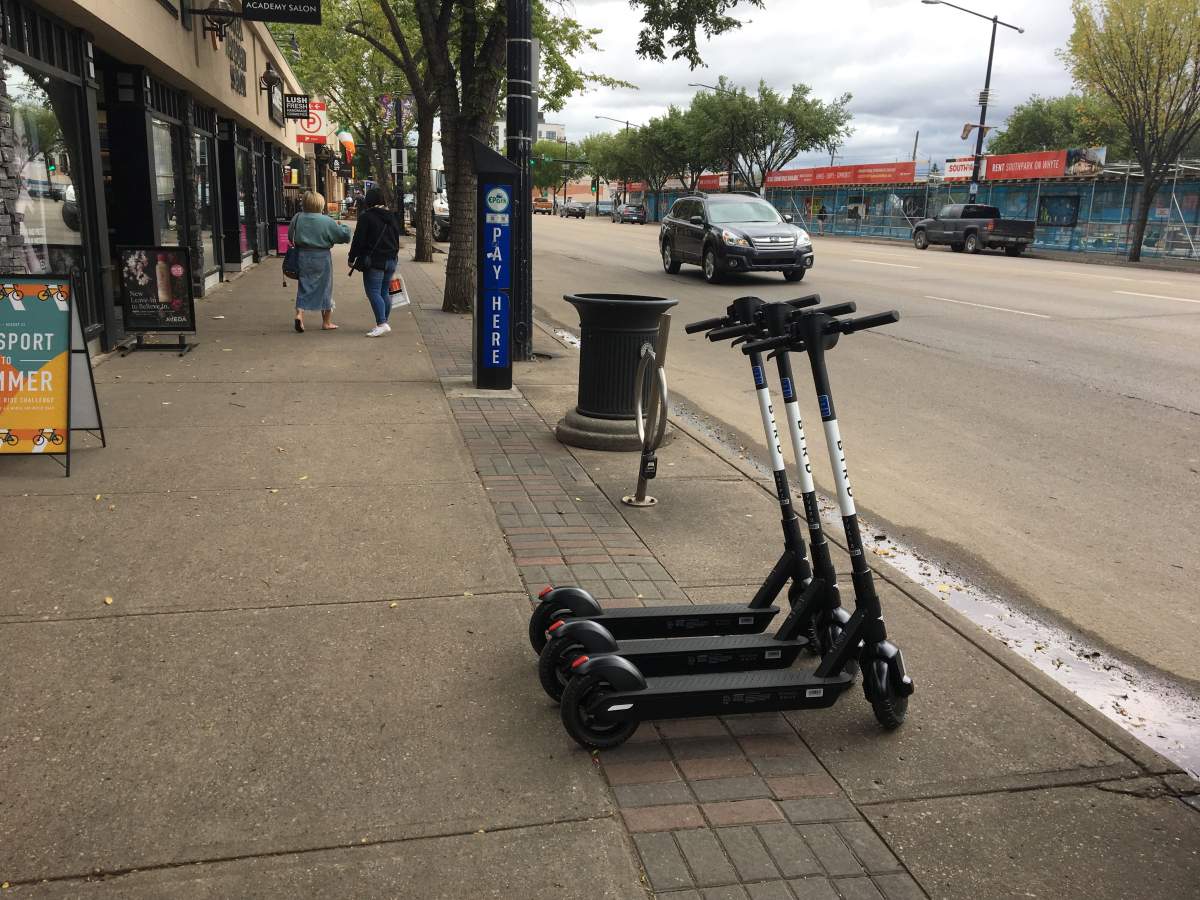

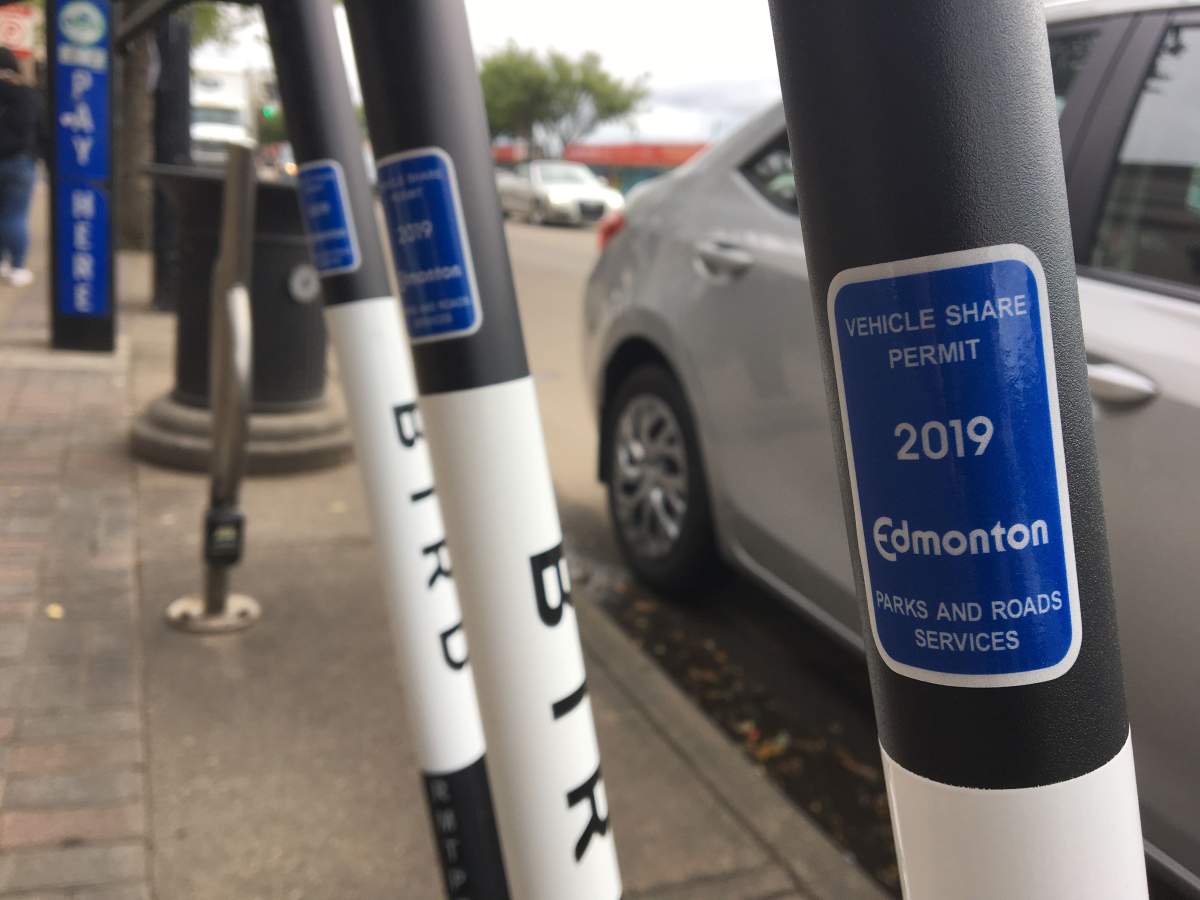

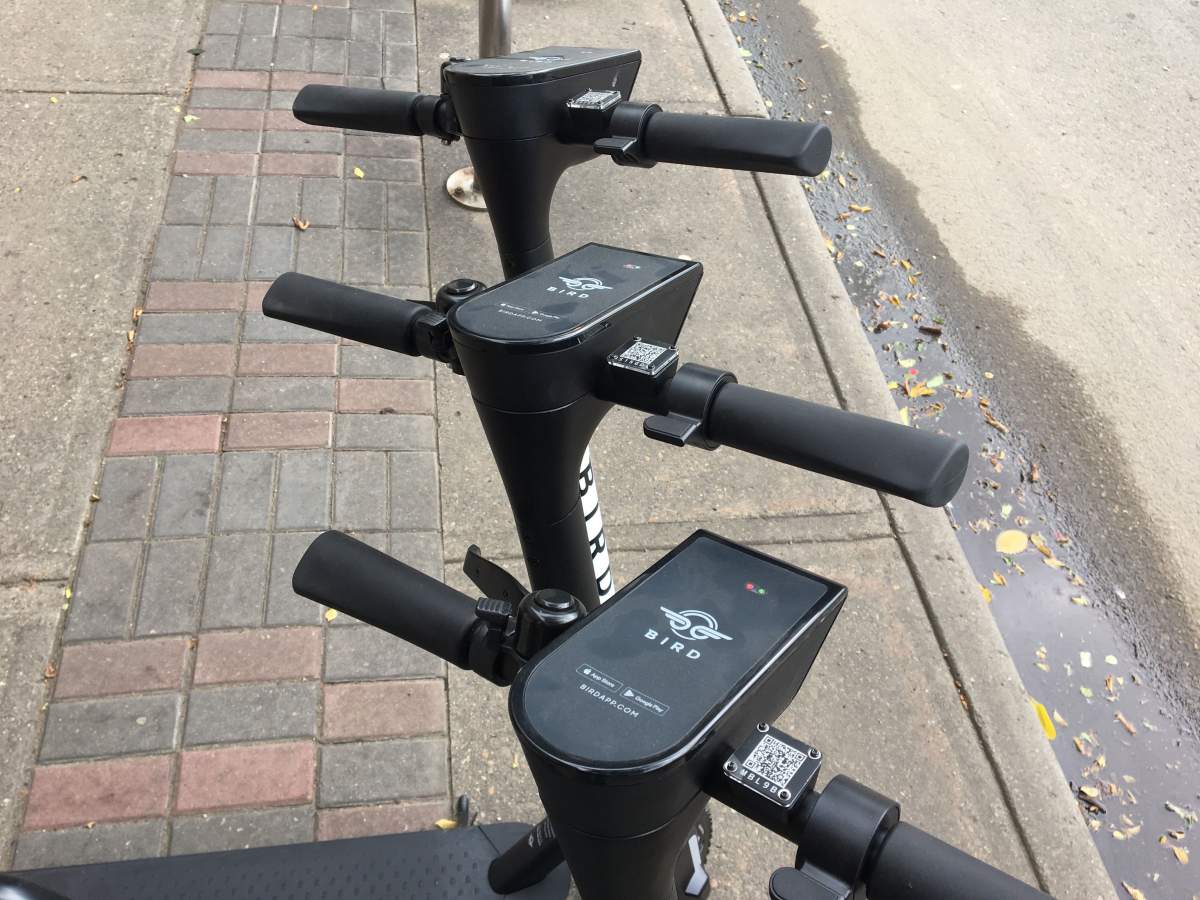

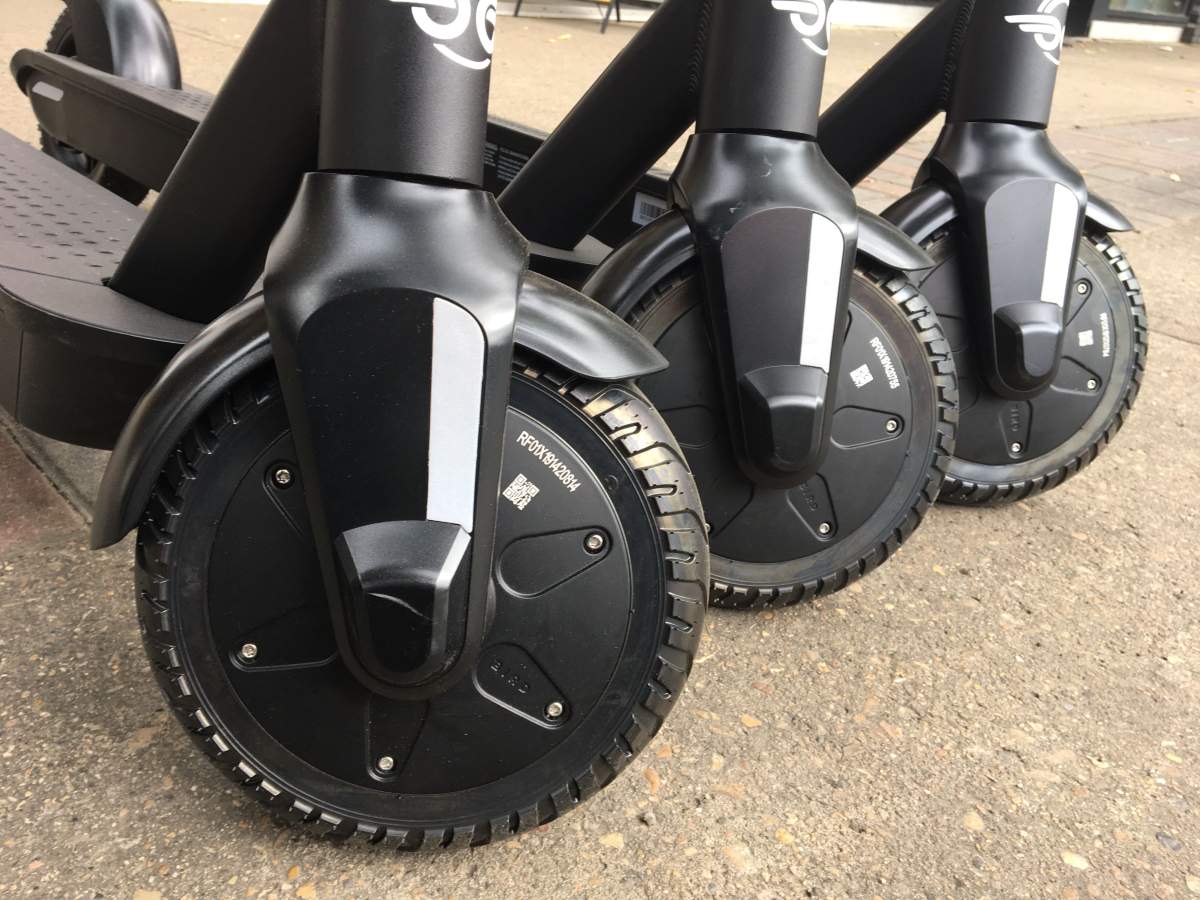
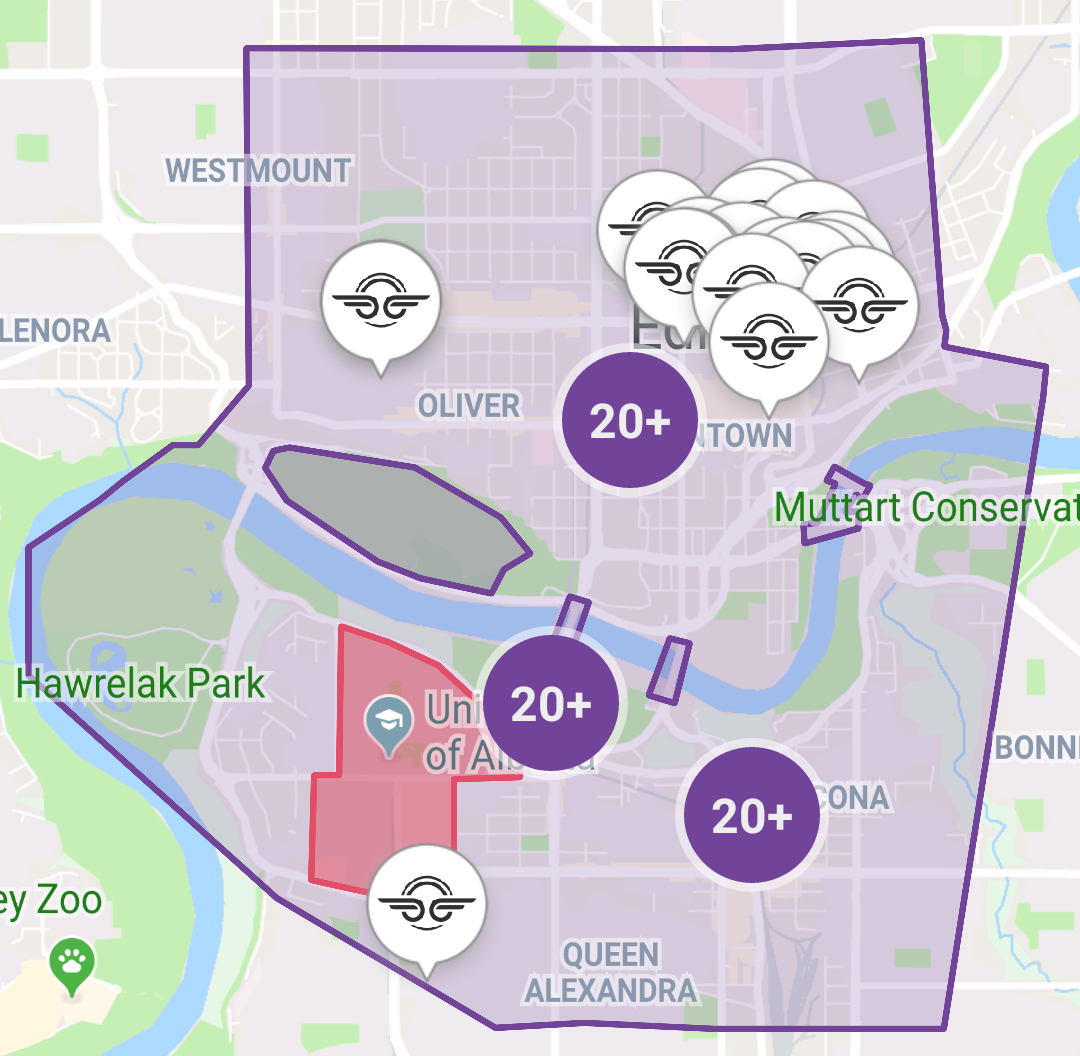







Comments
Want to discuss? Please read our Commenting Policy first.